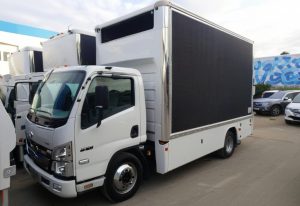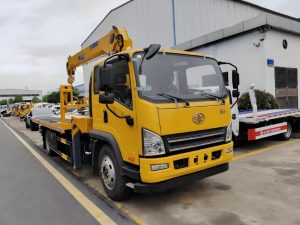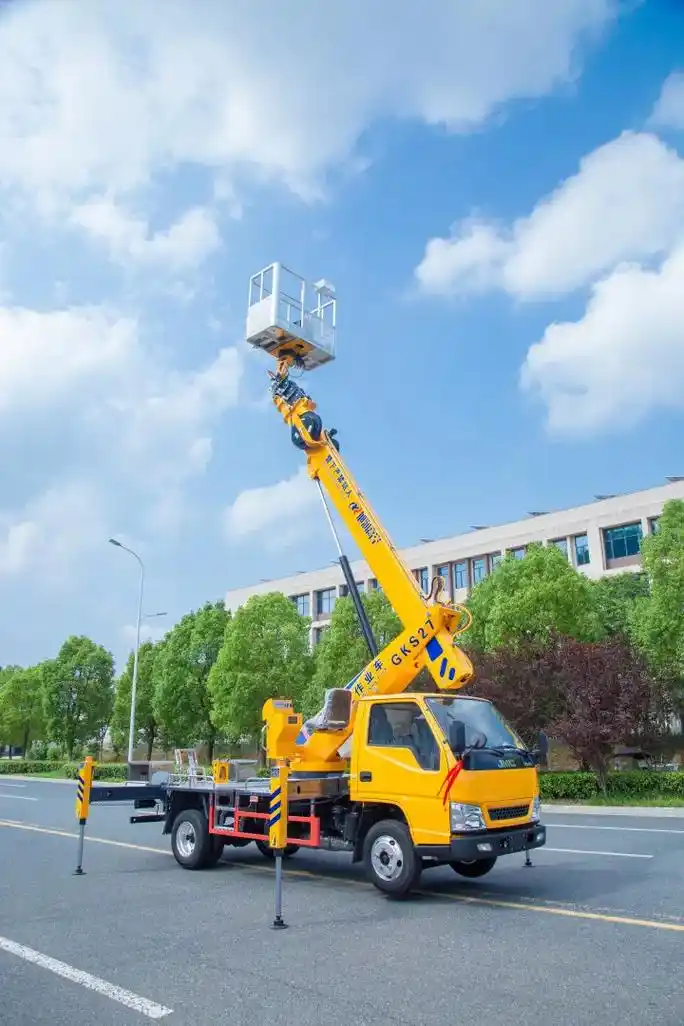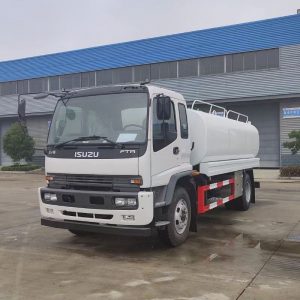Table of Contents
Toggle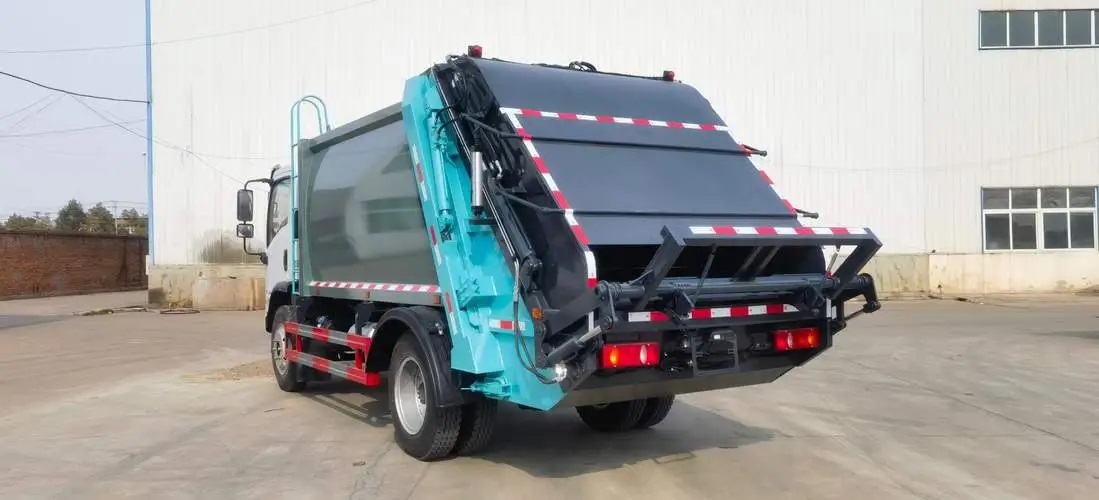
Introduction
Work trucks are the backbone of many industries, from construction to landscaping, and even emergency services. They provide the muscle and versatility needed to get the job done efficiently. In this article, we’ll dive into the various aspects that make work trucks indispensable, from their types and features to maintenance and environmental impact. Whether you’re a seasoned professional or just starting out in your industry, having the right work truck can make all the difference in your daily operations.
Types of Work Trucks
When it comes to work trucks, one size definitely does not fit all. Depending on your industry and specific needs, you might find yourself choosing between several types. Each type has its own set of features and advantages that cater to different job requirements. Let’s explore these in more detail.
Pickup Trucks
These are the most versatile work trucks out there. With their open beds, they can haul everything from tools to debris. They’re great for contractors, landscapers, and anyone who needs a reliable vehicle for both work and personal use.
Versatility and Utility: Pickup trucks are incredibly versatile. You can use them to transport a wide range of materials such as soil, gravel, or even heavy machinery. The open bed design allows for easy loading and unloading, making it perfect for quick tasks.
Popular Models: Some popular models include the Ford F-150, Chevrolet Silverado 1500, and the Ram 1500. Each of these models offers a variety of trims and configurations to suit different needs.
Customization: Pickup trucks offer numerous customization options like bed liners, toolboxes, and cargo management systems that can enhance their functionality.
Box Trucks
Also known as cube vans, these are ideal for moving large quantities of goods. Think of them as the go-to for delivery services or moving companies. Their enclosed cargo space keeps items protected from the elements.
Enclosed Cargo Space: The main advantage of box trucks is their enclosed cargo space, which provides protection against weather conditions and theft. This makes them ideal for transporting valuable or sensitive goods.
Use Cases: Box trucks are commonly used by moving companies, delivery services, and even some retail businesses that need to transport large amounts of stock.
Models: Popular models include the Ford Transit, Mercedes-Benz Sprinter, and Isuzu NPR. These models come with various engine options and configurations to meet different business needs.
Flatbed Trucks
These are perfect for hauling oversized loads that wouldn’t fit in a traditional cargo space. Construction materials, heavy equipment—you name it—if it’s bulky, a flatbed truck can probably handle it.
Open Design: The open design of flatbed trucks makes them extremely versatile for transporting large or awkwardly shaped items that wouldn’t fit in an enclosed space.
Load Capacity: Flatbed trucks typically have a high load capacity, making them ideal for heavy-duty tasks such as transporting construction materials or industrial equipment.
Safety Considerations: While their open design is advantageous for loading and unloading, it also requires careful securing of loads to ensure safety during transport.
Utility Trucks
Equipped with built-in compartments and specialized tools, utility trucks are essential for electricians, plumbers, and other tradespeople who need easy access to their gear while on the job site.
Built-in Storage: Utility trucks come with built-in storage compartments that allow tradespeople to organize their tools and equipment efficiently. This setup reduces downtime as everything is easily accessible.
Customization: These trucks can be customized with additional storage solutions like ladder racks or specialized tool drawers to further enhance their utility.
Popular Models: The Ford F-Series Super Duty, Chevrolet Silverado HD, and Ram 2500 are popular choices among tradespeople for their reliability and customization options.
Key Features to Consider
Not all work trucks are created equal, and knowing what features to look for can make a big difference in performance and efficiency. Here are some key features to keep in mind:
Engine Performance
The heart of any truck is its engine. You’ll want something powerful enough to handle heavy loads without sacrificing too much fuel efficiency. Diesel engines are often favored for their torque and longevity.
Diesel vs. Gasoline: Diesel engines generally offer more torque and better fuel efficiency compared to gasoline engines. However, they can be more expensive to maintain. Gasoline engines are typically quieter and cheaper to repair but may not offer the same level of performance under heavy loads.
Horsepower and Torque: When considering engine performance, look at both horsepower and torque. High torque is essential for towing and hauling heavy loads, while horsepower affects overall speed and acceleration.
Payload Capacity
This refers to how much weight a truck can safely carry in its bed or cargo area. Always check this specification to ensure your truck can handle your typical load requirements.
Calculating Payload: To calculate payload capacity, subtract the truck’s curb weight from its Gross Vehicle Weight Rating (GVWR). This will give you an idea of how much additional weight your truck can handle safely.
Importance of Payload Capacity: Overloading your truck can lead to mechanical failures and even accidents. Always adhere to the manufacturer’s specified limits to ensure safety and longevity of the vehicle.
Fuel Efficiency
Let’s face it—gas isn’t cheap. A more fuel-efficient truck will save you money in the long run, especially if you’re putting a lot of miles on it daily. Look for models that offer a good balance between power and fuel economy.
Fuel Types: Besides traditional gasoline and diesel engines, consider alternative fuel options like natural gas or electric powertrains. These options can offer significant long-term savings and environmental benefits.
MPG Ratings: Always check the miles-per-gallon (MPG) ratings for both city and highway driving conditions. Trucks with higher MPG ratings will be more cost-effective over time.
Durability
Work trucks take a beating day in and day out. You’ll want something built to last with robust construction materials and reliable components. Check reviews and ratings for long-term reliability before making your purchase.
Build Quality: Look for trucks with high-quality construction materials like reinforced steel frames and durable interiors designed to withstand heavy use.
Reputation: Some brands have a reputation for building durable trucks. Reading customer reviews and expert ratings can provide valuable insights into a truck’s long-term reliability.
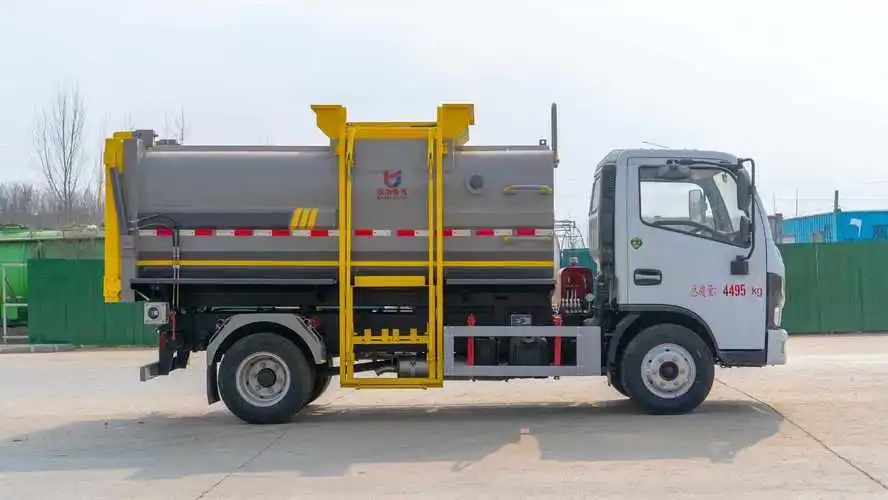
Popular Brands and Models
Certain brands have earned their reputation for producing reliable work trucks. Here are a few that stand out:
Ford F-Series
The Ford F-Series has been America’s best-selling truck for decades, and for good reason. They offer a wide range of models to suit various needs, from the F-150 to the heavy-duty F-450.
Versatility: The F-Series lineup is incredibly versatile, catering to both light-duty and heavy-duty needs. Whether you need a truck for everyday tasks or heavy lifting, there’s an F-Series model for you.
Advanced Features: Modern F-Series trucks come equipped with advanced features like Pro Trailer Backup Assist, adaptive cruise control, and even hybrid powertrain options.
Durability: Ford’s reputation for building tough, durable trucks makes the F-Series a reliable choice for any business.
Chevrolet Silverado
Known for its rugged durability and impressive towing capacity, the Silverado is another top choice among professionals who need a dependable workhorse.
Towing Capacity: The Silverado excels in towing capacity, making it ideal for hauling trailers, boats, or heavy machinery.
Comfort and Technology: Despite its rugged nature, the Silverado offers a comfortable cabin with advanced technology features like a touchscreen infotainment system, Apple CarPlay, and Android Auto.
Range of Models: From the light-duty 1500 to the heavy-duty 3500HD, there’s a Silverado model to meet various business needs.
Ram Trucks
Ram trucks are celebrated for their luxurious interiors without compromising on capability. They offer powerful engines and innovative features that make them a favorite in the work truck category.
Interior Comfort: Ram trucks are known for their luxurious interiors, featuring high-quality materials, spacious cabins, and advanced infotainment systems.
Engine Options: With options ranging from efficient V6 engines to powerful HEMI V8s and even a diesel variant, Ram trucks offer something for everyone.
Innovative Features: Ram trucks come with unique features like the RamBox Cargo Management System and multifunction tailgate, adding extra utility.
Toyota Tundra
While not as popular as its American counterparts, the Toyota Tundra offers excellent reliability and comes with a reputation for longevity that few can match.
Reliability: Toyota’s reputation for building reliable vehicles extends to the Tundra, which is known for its long-lasting performance.
Resale Value: The Tundra often retains its value better than many competitors, making it a smart investment in the long run.
Off-Road Capability: With models like the TRD Pro, the Tundra is also a great choice for those who need off-road capability in their work truck.
Customization Options
One of the best things about work trucks is how customizable they are. Here are some popular add-ons:
Tool Storage Solutions
Built-in toolboxes or custom storage solutions can keep your gear organized and easily accessible, saving you time on the job site.
Built-in Toolboxes: Many work trucks can be outfitted with built-in toolboxes that provide secure storage for your tools and equipment.
Custom Storage Solutions: Custom storage solutions like drawer systems or modular storage units can be tailored to your specific needs, enhancing productivity.
Security Features: Look for storage solutions with added security features like locking mechanisms to protect your valuable tools from theft.
Ladder Racks
Essential for tradespeople who need to transport ladders or long materials like pipes and lumber. They maximize your truck’s hauling capacity without compromising safety.
Types of Ladder Racks: There are several types of ladder racks available, including side-mounted racks, over-cab racks, and adjustable racks to fit different needs.
Material: Most ladder racks are made from durable materials like aluminum or steel to withstand heavy use and harsh conditions.
Installation: Many ladder racks are easy to install and can be adjusted to fit different truck bed sizes and configurations.
Specialty Equipment
From winches to snow plows, the right equipment can turn your truck into a multi-functional tool that’s ready for anything you throw at it.
Winches: Winches are essential for tasks that require pulling heavy loads or recovering stuck vehicles. They can be mounted on the front or rear of the truck.
Snow Plows: For businesses operating in snowy regions, snow plows can turn your work truck into an essential winter tool, clearing roads and driveways efficiently.
Lift Gates: Lift gates are useful for loading and unloading heavy items, reducing the risk of injury and increasing efficiency on the job site.
Maintenance and Upkeep
Keeping your work truck in top shape is crucial for its longevity and performance. Here’s how:
Regular Service Checks
Routine maintenance like oil changes, tire rotations, and brake inspections can prevent small issues from becoming big problems down the road.
Oil Changes: Regular oil changes are essential to keep your engine running smoothly. Follow the manufacturer’s recommended intervals for best results.
Tire Maintenance: Regularly check tire pressure and tread depth to ensure optimal performance and safety. Rotate tires according to your vehicle’s maintenance schedule.
Brake Inspections: Regular brake inspections can help identify wear and tear before it becomes a safety issue. Replace brake pads and fluid as needed.
Common Repairs
Familiarize yourself with common repairs specific to your truck model so you can address them promptly and avoid costly downtime.
Suspension Repairs: Work trucks often endure rough conditions that can wear out suspension components. Regular inspections can catch issues early.
Transmission Issues: Be aware of signs of transmission problems like slipping gears or delayed engagement. Address these issues promptly to avoid major repairs.
Electrical Problems: Modern trucks have complex electrical systems that can develop issues over time. Regular diagnostics can help identify problems early.
Long-term Care Tips
Simple habits like keeping your truck clean, using quality fuel, and storing it properly during off-seasons can extend its lifespan significantly.
Cleanliness: Regularly wash your truck to remove dirt, salt, and debris that can cause rust and corrosion. Pay special attention to the undercarriage.
Quality Fuel: Use high-quality fuel and additives if recommended by the manufacturer. This can improve engine performance and fuel efficiency.
Proper Storage: If your truck will be unused for an extended period, store it in a dry, sheltered location. Consider using a cover to protect it from the elements.
Cost and Budgeting
Owning a work truck is an investment, so it’s essential to budget wisely:
Initial Purchase Costs
New trucks come with a hefty price tag, but they also offer the latest features and warranties. Used trucks can be more affordable but may require more immediate maintenance.
New vs. Used: Decide whether a new or used truck best suits your budget and needs. New trucks offer peace of mind with warranties but come at a higher cost. Used trucks can be more affordable but may need more frequent repairs.
Depreciation: Keep in mind that new trucks depreciate quickly in their first few years. If resale value is important to you, consider this when making your purchase decision.
Financing Options
Whether you opt for leasing or buying, understanding your financing options can help you manage your cash flow more effectively. Many dealerships offer flexible plans tailored for business owners.
Leasing vs. Buying: Leasing can offer lower monthly payments and allow you to upgrade to newer models regularly. Buying provides ownership but comes with higher monthly payments.
Interest Rates: Shop around for the best interest rates and loan terms. Even a small difference in interest rates can save you significant money over the loan term.
Long-term Costs
Beyond the initial purchase, consider costs like insurance, maintenance, fuel, and potential downtime when budgeting for your work truck.
Insurance: Commercial vehicle insurance can be costly but is essential for protecting your investment. Shop around for competitive rates that offer comprehensive coverage.
Maintenance Costs: Budget for regular maintenance and unexpected repairs. A well-maintained truck will save you money in the long run by avoiding major breakdowns.
Fuel Expenses: Consider fuel efficiency when choosing a truck model. Higher MPG ratings will result in lower fuel costs over time, especially if you cover long distances regularly.
Safety Considerations
Safety should never be an afterthought when choosing a work truck. Here’s what you need to consider:
Essential Safety Features
Modern work trucks come equipped with various safety features like airbags, anti-lock brakes, and stability control systems to keep you safe on the road.
Airbags: Ensure your truck has front and side airbags to protect the driver and passengers in the event of a collision.
Anti-lock Brakes (ABS): ABS helps prevent the wheels from locking up during hard braking, maintaining steering control and reducing stopping distances.
Stability Control Systems: These systems help prevent rollovers by detecting and reducing loss of traction, especially useful in larger, top-heavy trucks.
Advanced Driver Assistance Systems (ADAS): Features like lane departure warning, adaptive cruise control, and automatic emergency braking can significantly enhance safety.
Driver Training Programs
Investing in driver training programs can reduce accidents and improve overall safety for your team. Knowledgeable drivers are less likely to cause wear and tear on the vehicle as well.
Defensive Driving: Teach your drivers defensive driving techniques to anticipate and react to potential hazards on the road.
Vehicle Handling: Training programs can help drivers understand how to handle their specific truck model, especially when it comes to towing or carrying heavy loads.
Regular Refresher Courses: Periodic refresher courses can keep safety top of mind and ensure drivers stay updated on best practices and new technologies.
Legal Requirements
Make sure your truck complies with local regulations regarding weight limits, emissions standards, and other legal requirements to avoid fines and penalties.
Weight Limits: Overloading your truck can result in fines and damage to the vehicle. Always adhere to specified weight limits.
Emissions Standards: Ensure your truck meets local emissions standards to avoid penalties and contribute to environmental conservation.
Licensing and Permits: Make sure all drivers have the appropriate licenses for the type of vehicle they’re operating. Some work trucks may require special permits or endorsements.
Environmental Impact
As concerns about climate change grow, it’s essential to consider the environmental impact of your work truck:
Fuel Types and Emissions
Diesel engines may offer power, but they also produce more emissions compared to gasoline engines. Understanding these differences can help you make an informed choice.
Diesel vs. Gasoline: Diesel engines are known for their efficiency and torque but produce higher levels of nitrogen oxides (NOx) and particulate matter (PM). Gasoline engines are cleaner but may not offer the same performance under heavy loads.
Alternative Fuels: Consider alternative fuels like compressed natural gas (CNG), propane, or biodiesel, which can reduce emissions and offer cost savings.
Emission Control Technologies: Modern trucks come equipped with technologies like selective catalytic reduction (SCR) and diesel particulate filters (DPF) to reduce harmful emissions.
Electric and Hybrid Options
More manufacturers are offering electric or hybrid work trucks that promise lower emissions and reduced fuel costs over time—an excellent option for environmentally conscious businesses.
Electric Trucks: Fully electric trucks produce zero tailpipe emissions and offer lower operating costs. They are ideal for businesses with predictable routes and access to charging infrastructure.
Hybrid Trucks: Hybrid trucks combine an internal combustion engine with an electric motor, offering improved fuel efficiency and reduced emissions without range anxiety.
Charging Infrastructure: When considering electric or hybrid trucks, assess the availability of charging infrastructure and potential upgrades needed for your facilities.
Sustainable Practices
Simple changes like optimizing routes to reduce mileage or maintaining proper tire pressure can make a significant difference in your truck’s environmental footprint over its lifetime.
Route Optimization: Use route planning software to minimize mileage, reduce fuel consumption, and improve efficiency.
Tire Maintenance: Properly inflated tires reduce rolling resistance, improving fuel efficiency and reducing emissions.
Idle Reduction: Encourage drivers to turn off engines when idling for extended periods. Many modern trucks come with automatic start-stop systems to reduce idle time.
Conclusion
Work trucks are indispensable tools that drive productivity across various industries. By understanding the types available, key features to consider, popular models, customization options, maintenance tips, cost considerations, safety measures, and environmental impacts, you can make an informed decision that best suits your needs.


